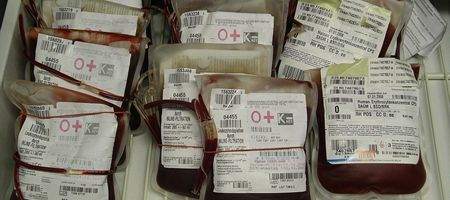German researchers have developed intelligent radio nodes for keeping track of blood bags which, unlike RFID tags, do not interfere with hospital medical devices.

If blood bags kept on standby aren’t needed, they can only be reused if they have been kept cold continuously. The new radio nodes will constantly monitor the temperature to ensure that most of these blood supplies can be reused.
They should also help improve safety, as radio nodes attached to the blood bags and to a patient wristband can exchange information. If the donor blood doesn’t match that of the patient, a warning signal sounds and a red light comes on.
The radio nodes were developed by researchers at the Fraunhofer Institute for Integrated Circuits IIS and the Fraunhofer Working Group SCS.
“In contrast to tags that use RFID – radio frequency identification – we do not expect intelligent radio nodes to interfere with hospital medical devices,” explains Jürgen Hupp, head of communication networks department at IIS. “While the transmit power required for RFID tag reading can be as much as two watts, radio nodes only transmit in the milliwatt range.”
This is because RFID tags only consist of a memory chip and antenna. To read an RFID tag, it must first be activated by the reader. In contrast, an intelligent radio node is an active radio system that is battery-powered and has its own processing unit, so they can continuously gather information and trigger actions.
The system is built upon a basic platform which the researchers can tailor to different applications. Another example involves using radio nodes to optimize the management of medical devices in hospitals, keeping track of devices such as syringe pumps and cardiac monitors.
“Hospitals can get by with fewer devices, eliminate unnecessary time-wasting and cut costs,” says Dr Alexander Pflaum, department head at SCS.
A six-month test phase is set to begin at Erlangen University Hospital in January 2010, and the Opal Health system could be ready for use in around two years.






